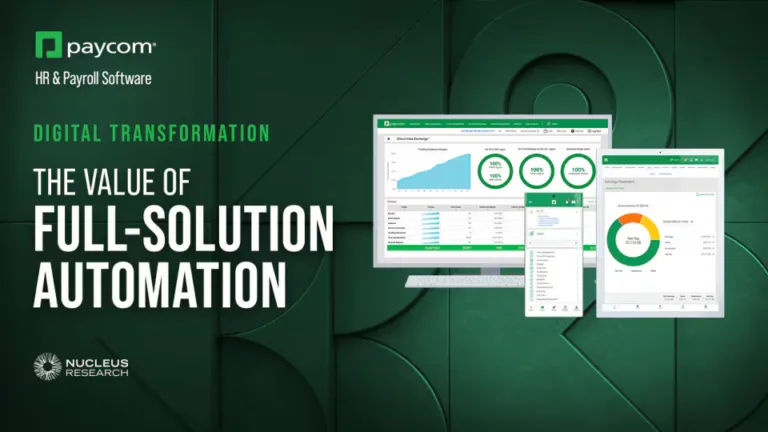Sponsored
The basics of investing: All you need to know to get started
Here’s why over 60% of households are diving into the world of stocks and how to get started without breaking a sweat.Learn everything you need to know righ here.

Just a heads up, if you buy something through our links, we may get a small share of the sale. It’s one of the ways we keep the lights on here. Click here for more.
Recent data from a Gallup poll shows that over 60% of American households own stocks nowadays, but despite the popularity of investing, for some people, this concept is still mysterious, with many unfamiliar terms.
Fortunately, you don’t need advanced math skills to succeed in this endeavor – it all comes down to understanding the building blocks of investing.
In this blog, we will explain everything you need to know about investing so that you can feel confident about starting. Read on!
What is investing, anyway?
Simply put, investing means buying an asset to generate an additional source of income or because you believe its value will increase over time.
There are myriad ways in which people can invest, from purchasing gold, real estate, or the Trump coin to putting their money toward improving their education or setting up a business.
In the financial landscape, however, investing refers to purchasing an asset, whether mutual funds, stocks, or bonds, with the goal of potentially growing your wealth over the years.
Investing has been gaining significant popularity, especially among young people who feel that they are facing an uncertain financial future.
Innovations in the tech space, like no-fee trading platforms and accessibility to financial information through the Internet, helped jump-start this trend.
There are many reasons why people consider investing, such as growing their money over the long term, saving for retirement, paying for college, or buying a house.

How much money do you need to start investing?
There’s no minimum income required to start investing. Brokers will ask for your employment status and annual income when you open a brokerage, as the company needs to comply with the regulations in place.
However, you can invest regardless of the job you do, and how much you earn. Some signs that you’re in a good position to invest include:
- You have a budget. This allows you to understand where your money goes and to set aside enough money for investing.
- Debt doesn’t overwhelm you. It’s very important to have debt under control before investing, but if you have some credit card debt and student loans, you don’t have to skip investing altogether, as there are ways to approach it smartly.
- You have an emergency fund in place. You don’t want to end up using money that you would need to ensure your financial security, so it’s essential to ensure that your emergency fund covers 3 to 6 months’ worth of your most important expenses before you get into investing.
How long should you invest for?
When investing, it’s imperative to remain committed to it long enough so that your assets can compound and grow. Here are some time frames for the most common goals:
- Retirement. In this case, you’ll have to invest for as long as 30 to 40 years, so the earlier you begin, the better it is, as it will help you maximize compounding power. As your time to retire approaches, remember to adjust your investment strategy by replacing aggressive investments with conservative ones, as this will help preserve your balance.
- Education. Since this is a longer-term goal, you need to invest for 10 to 15 years. You can start with a more aggressive investment approach and become more conservative as you need the funds.
- Down payment on a house. In this case, investing for just a few years (3 to 5) would be enough to achieve that goal. It’s recommended to opt for more conservative investments in this case, as this will lower the risk of major losses close to the purchase date.
What are the best investments for beginners?
There are different types of investwwwments accessible to anyone, no matter their income, age, investment goals, or risk tolerance. However, when you are just starting, some investments are more suitable:
High-yield savings accounts
This is one of the easiest ways to get started with investing.
High-yield savings accounts pay higher interest compared to standard savings accounts, simultaneously providing customers with regular access to their money.
Suppose you want to use a high-yield savings account to save up for a major purchase, such as a vacation, a house, or a car. In that case, it can be a good idea to use a high-paying savings account, as this will safeguard your principal and simultaneously apply interest earnings to your savings goal.
Consider having multiple savings accounts to make it easier to progress toward your goals. Many banks give you this option, and they have personalized nicknames for the different accounts, such as “Bali Vacation,” “Car Fund,” and so on.
Individual stocks
Purchasing stocks in individual companies is one of the most rewarding investment options, but it can also be risky, so keep this in mind before getting started.
Consider whether you want to invest for the long term (at least five years) and whether you understand the company you’re investing in.
Oftentimes, individuals get drawn into the short-term trading mentality when owning individual stocks, but if you cultivate patience, a fortune could potentially rise over time.
However, if you feel you can’t tolerate the risks associated with individual stocks, remember other alternatives may work better for you.

Mutual funds
Mutual funds enable investors to invest in a basket of bonds or stocks that they may not be able to build on their own.
The S&P 500 is one of the most common mutual fund tracking indexes, comprising more than 500 of the largest U.S. businesses.
Index funds are associated with low fees or no fees at all, ensuring investors can keep more of the fund’s returns for themselves, facilitating wealth-building over time.
ETFs
ETFs, or exchange-traded funds, are similar to mutual funds in that they hold a basket of securities. However, they trade during the day just like stocks.
Notably, unlike mutual funds, which have minimum investment requirements of a few thousand dollars, you can buy ETFs for the cost of one share plus any commissions or fees associated with the purchase.
However, if the broker offers the option of fractional share investing, you can start with even less if you’re considering ETFs.
CDs
CDs, or certificates of deposit, will tie up your cash for a longer time than a high-yield savings account.
You can buy CDs for different time periods, from six months to five years, but note that the money isn’t accessible before the CD matures.
If you do want to access it, you will have to pay a penalty.
The best part about CDs is that they are considered very safe, and if you buy one via a federally insured bank, you’ll benefit from coverage that is up to $250,000 per depositor per ownership category.
Important considerations before investing
As exciting as investing is, it can also be risky, and before you get started with it, you need to consider some things.
First and foremost, it’s essential to reflect on your investment goals, as different types of investments are suitable for different goals.
For example, if you’re saving for retirement, stocks and bonds are usually good options, as they can offer long-term growth, while for a short-term goal, like buying a car, a low-risk and high-return investment is recommended.
Besides knowing your investment goals, it’s also essential to figure out how much risk you can take in your investment returns.
Some factors will influence an investor’s risk tolerance, such as age, income, personality, and financial situation.
As a general rule in investing, the higher the risk, the higher the return, and it’s essential to be honest with yourself and choose only those investments that match your risk profile.
Another important consideration is what kind of investor you want to be. Do you want to do it all yourself?
If that’s the case, you’ll have to look for self-directed brokerage accounts. If you choose this approach, you’ll be choosing stocks, funds, or bonds yourself and adjusting your portfolio based on market changes.
Alternatively, you can consider professionally managed accounts, like robo advisors, which are essentially affordable digital financial services that rely on technology to enable automated investing.

Robo advisors are an excellent option for those who’d prefer to leave the heavy lifting of portfolio management and research to the pros.
Last but not least, you can also choose to hire a financial expert if you want that human touch, as they may be able to provide more personalized advice based on your specific financial situation.
Furthermore, you can even ask them questions you have about investing and investment strategies and get the guidance you need. However, keep in mind that this alternative comes at a higher cost.
When investing, it’s also important to think long-term and try not to panic. There’s a good chance that at some point, your investments won’t hold the same value.
However, as history has shown time and time again, markets are resilient and can recover from falls. So, be mindful when investing and keep your emotions in check so you won’t make any impulsive decisions that you’ll regret later.
This will guarantee a smooth investing journey and increase your chances of achieving your financial goals.
Ready to start investing?
In this blog, we’ve walked you through the basics of investing, so hopefully, now you feel more confident to get started and make your money work for you.
Remember to stay disciplined and patient when investing, and if necessary, don’t hesitate to seek the help of a financial professional.
With these considerations in mind, you can build a secure financial future, so start now, even if you have to start small.
Have any thoughts on this? Drop us a line below in the comments, or carry the discussion to our Twitter or Facebook.
Editors’ Recommendations:
Disclosure: This is a sponsored post. However, our opinions, reviews, and other editorial content are not influenced by the sponsorship and remain objective.



























